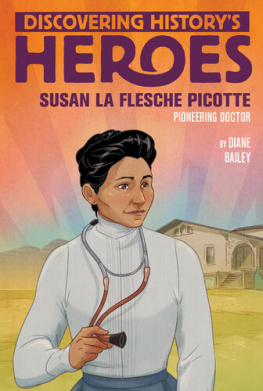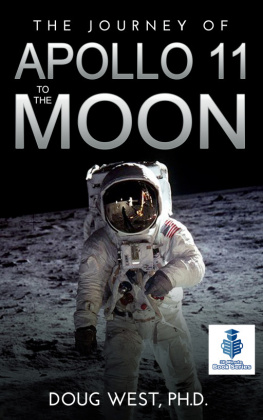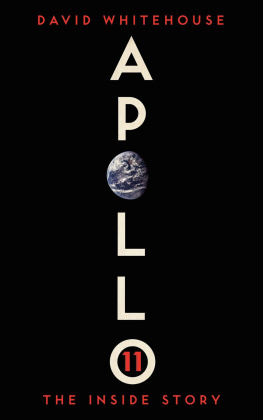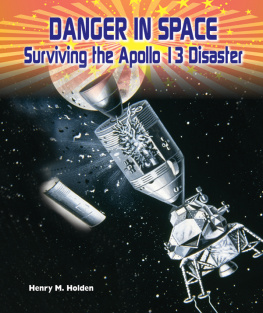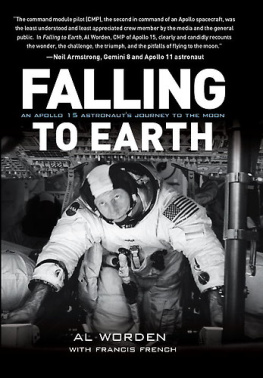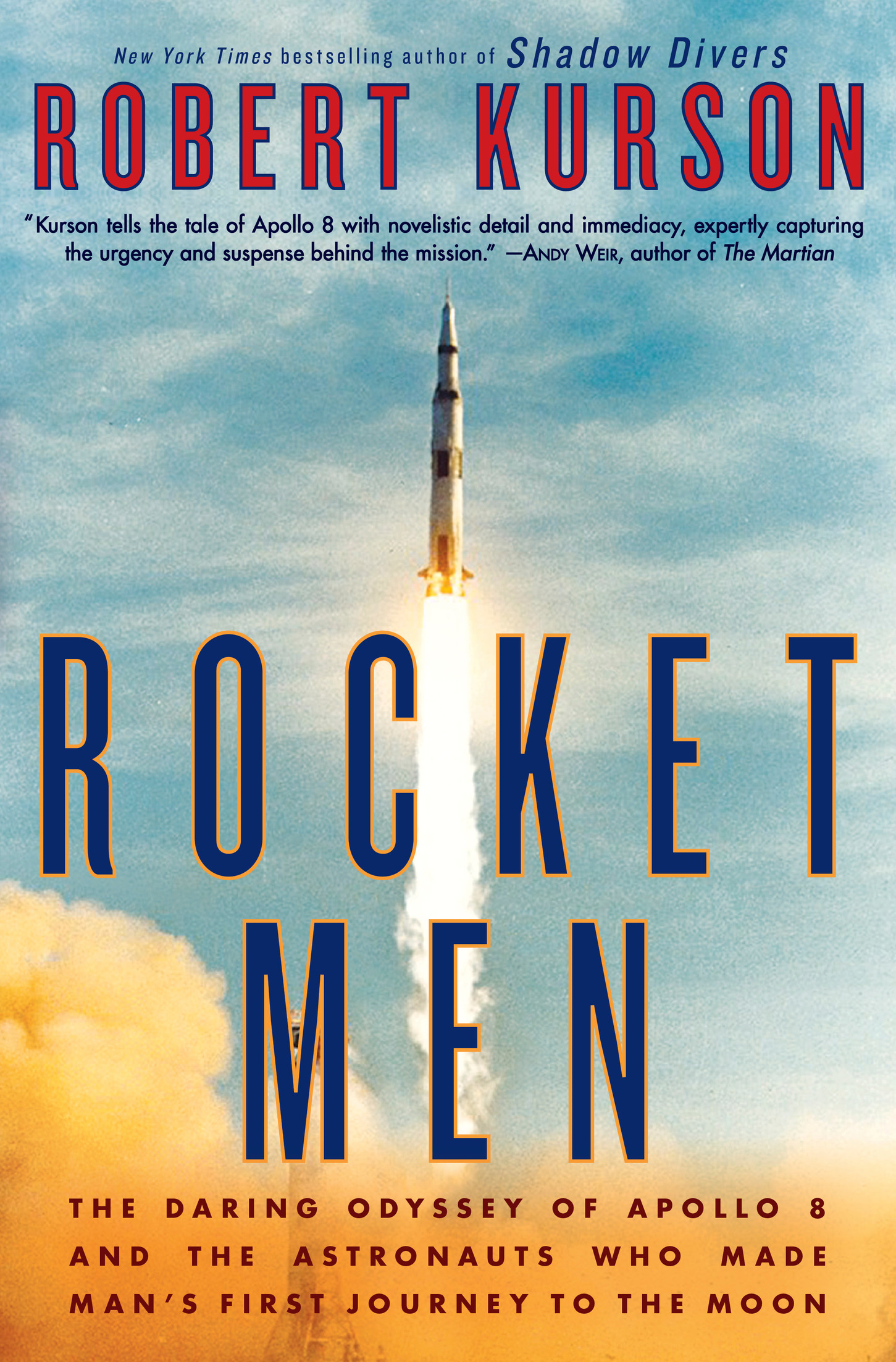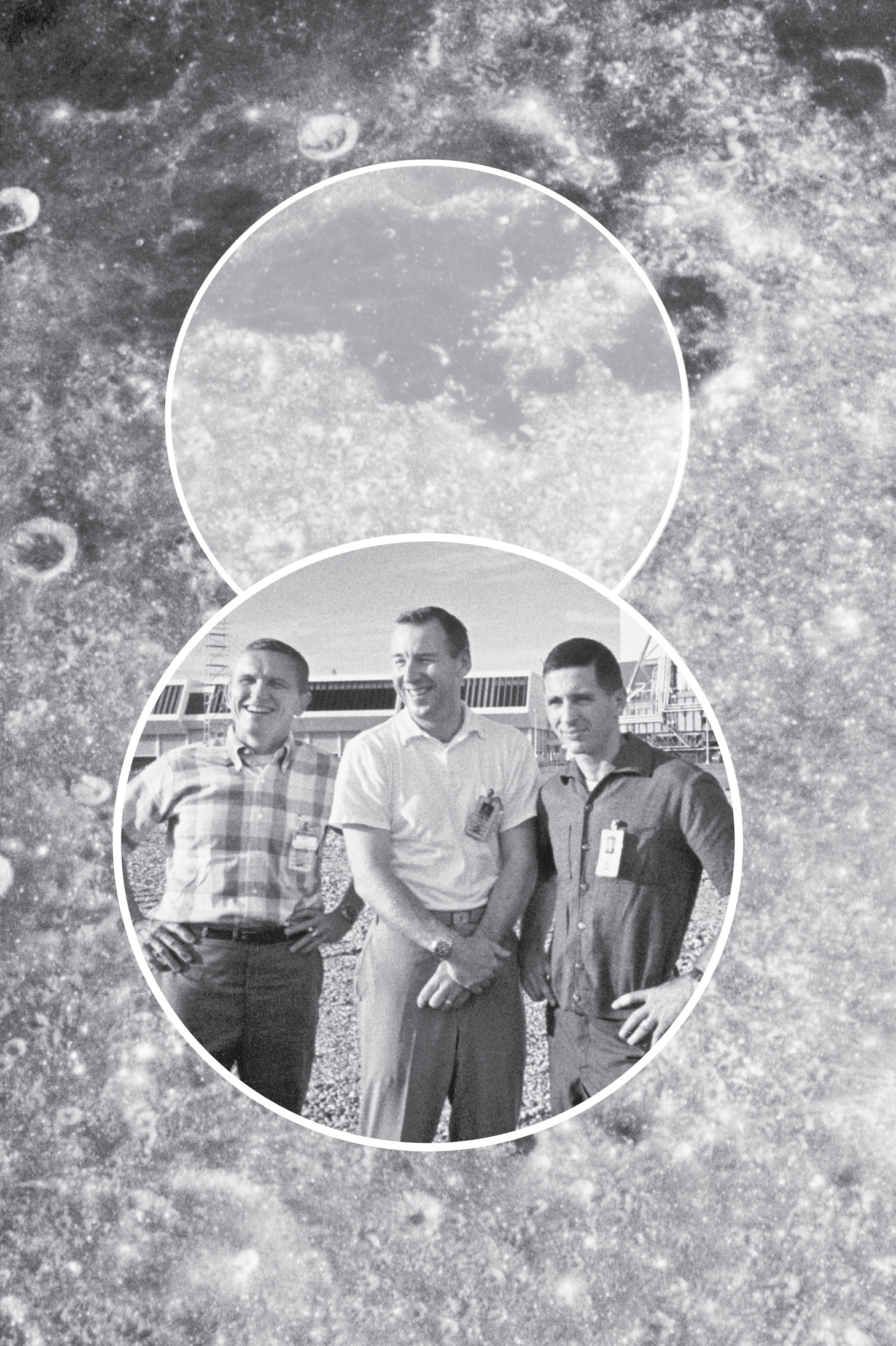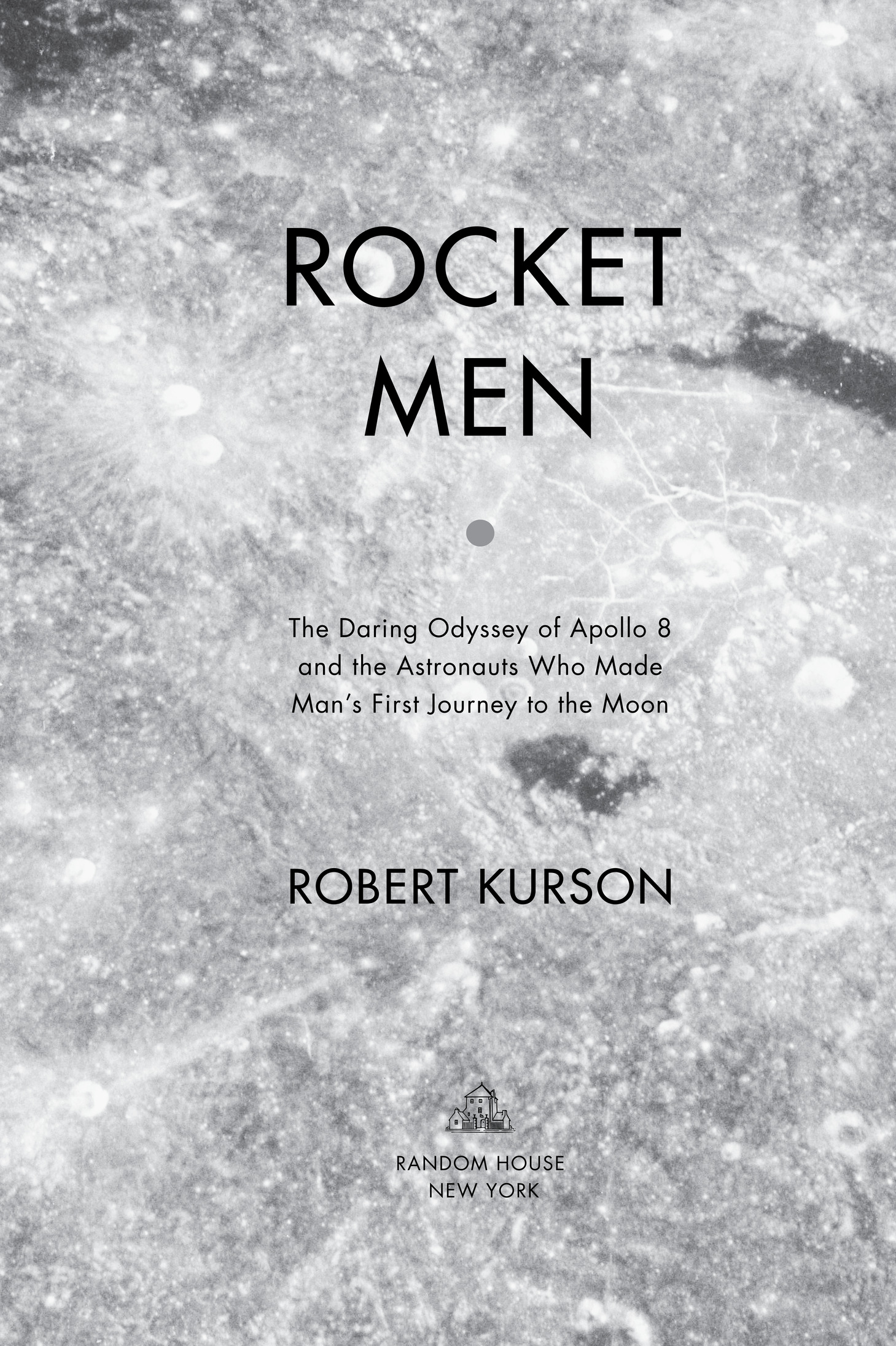All rights reserved.
Published in the United States by Random House, an imprint and division of Penguin Random House LLC, New York.
R ANDOM H OUSE and the H OUSE colophon are registered trademarks of Penguin Random House LLC.
Names: Kurson, Robert, author.
Title: Rocket men : the daring odyssey of Apollo 8 and the astronauts who made mans first journey to the Moon/ Robert Kurson.
Description: First edition. | New York : Random House, [2018] | Includes bibliographical references and index.
Identifiers: LCCN 2017009386| ISBN 9780812988703 (hardback) | ISBN 9780812988727 (ebook)
Subjects: LCSH: Project Apollo (U.S.) | Space flight to the Moon. | Apollo 8 (Spacecraft)
Classification: LCC TL789 . 8.U6 A5438 2018 | DDC 629 . 45/4dc23 LC record available at https://lccn.loc.gov/2017009386
December 21, 1968Four days before Christmas
THREE ASTRONAUTS ARE STRAPPED INTO A small spacecraft thirty-six stories in the air, awaiting the final moments of countdown. They sit atop the most powerful machine ever built.
The Saturn V rocket is a jewel of the National Aeronautics and Space Administration, a vehicle that will generate the energy of a small atomic bomb. But it has never flown with men aboard, and it has had just two tests, the most recent of which failed catastrophically just eight months earlier. The three astronauts are going not merely into Earth orbit, or even beyond the world altitude record of 853 miles. They intend to go a quarter of a million miles away, to a place no man has ever gone. They intend to go to the Moon.
Beneath them, the United States is fracturing. The year 1968 has seen killing, war, protest, and political unrest unlike any in the countrys history, from the assassinations of Martin Luther King, Jr., and Robert Kennedy to the unraveling of Vietnam to the riots in Chicago. Already, Time magazine has named THE DISSENTER its Man of the Year.
As the countdown begins, there are engineers and scientists at NASA who question whether the crew will ever return. Even the astronauts are realistic about their chances of surviving the flight, an operation riskier than anything the American space agency has ever attempted. One of them has recorded a final goodbye to his wife, to be played in the event he doesnt return.
In August, this mission did not exist. Nearly everything that has gone into its planningthe training, analysis, calculations, even the politicshas been rushed to the launchpad in a fraction of the time ordinarily required. If anything goes wrong, public opinionand the will of the United States governmentmight turn against NASA. The fate of the entire space program hangs on the crews safe return.
As the moment of launch draws near, one of the astronauts spots a mud dauber wasp building a nest on the outside of one of the spacecrafts tiny windows. Back and forth the insect moves, grabbing mud and adding to its new home. The astronaut thinks, You are in for a surprise.
Vapors begin to spew from around the base of the giant rocket. Less than a minute remains before lift-off. When the five first-stage engines ignite, they will deliver a combined 160 million horsepower. In the final few seconds, a typhoon of flames unfurls to either side. Beneath the astronauts, it is not just the launchpad that begins to shake, but the entire world.
August 3, 1968Four months earlier
AS HE SAT ON A BEACH in the Caribbean, a quiet engineer named George Low ran his fingers through the sand and wondered whether he should risk everything to win the Space Race and help save the world.
At forty-one, Low was already a top manager and one of the most important people at NASA, in charge of making sure the Apollo spacecraft was flightworthy.
Apollo had a single goal, perhaps the greatest and most audacious ever conceived: to land a man on the Moon and return him safely to Earth. In 1961, President John F. Kennedy had committed the United States to achieving this goal by the end of the decade. Never had a more inspiring promise been made to the American peopleor one that could be so easily verified.
Now, Kennedys end-of-decade deadline was in jeopardy. Design and engineering problems with the lunar modulethe spidery landing craft that would move astronauts from their orbiting ship to the lunar surface and back againthreatened to stall the Apollo program and put Kennedys deadline, just sixteen months away, out of reach. And that led to another problem. Every day that Apollo languished, the Soviet Union moved closer to landing its own crew on the Moon. And that mattered. The nation that landed the first men on the Moon would score the ultimate victory in the years-long Space Race between the two superpowers, one from which the second-place finisher might never recover.
For months, NASAs best minds had worked around the clock to fix the issues with the lunar module, but the temperamental and complex landing craft only fell further and further behind schedule. By summer, many at the space agency had abandoned hope of making a manned lunar landing by the end of the decade.
And then Low had an idea.
It had come to him just a few weeks before hed arrived at this beach, and it was wild, an epiphany, a dream. It was also dangerous, risky beyond anything NASA had ever attempted. But the more Low thought about it, the more he believed it could keep the Apollo program moving and save Kennedys deadlineand maybe even beat the Soviets to the Moon.
Low inhaled the fresh, salty air and tried to push space travel out of his thoughts. At home, his mind burned nonstop with ideas, formulae, trajectories. Now he needed a break, and it should have been easy to find one in this tropical paradise. About the only reminder of America was the local newspaper, which told of the Newport Pop Festival in Costa Mesa, California, where more than a hundred thousand music fans were expected, and brought word of potential protests at the coming Democratic National Convention in Chicago. It had been an explosive year already, with assassinations, riots, and violence. A quiet beach was just where a man like Low needed to be.
But Low could not relax. He walked the beach, looking out over the ocean toward Moscow and the Moon, thinking, imagining, America and the world on fire behind him.


